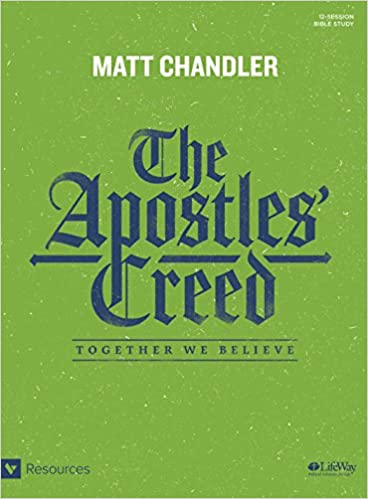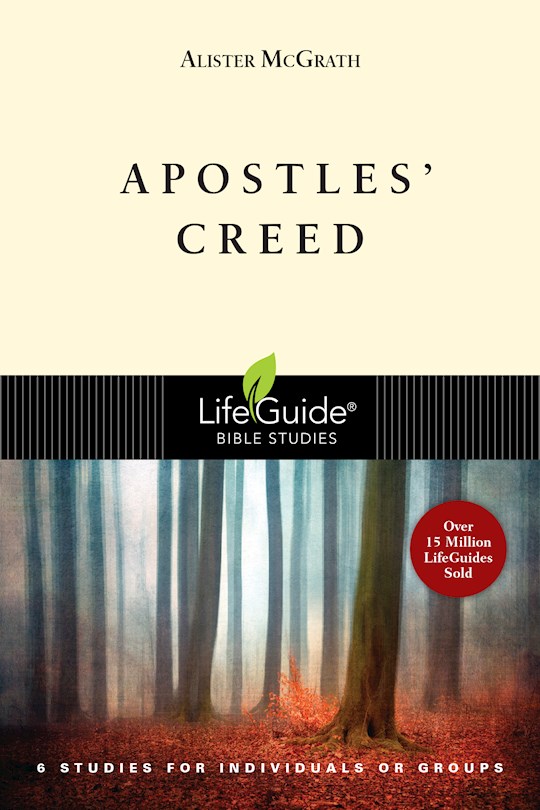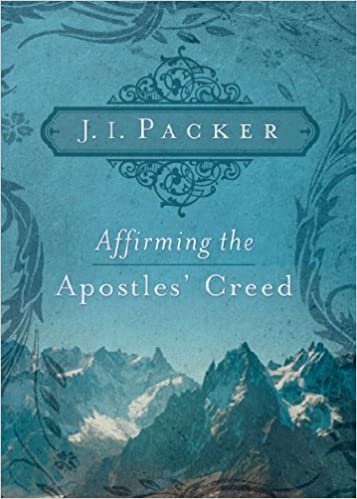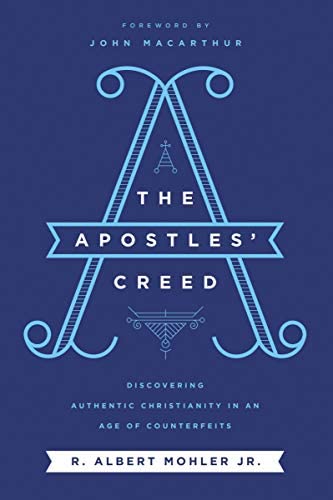Click here to return to Blog Post Intro
The Apostles’ Creed: Together We Believe by Matt Chandler

All who are Adam’s children (in other words, all of humanity) have been diagnosed with the disease of sin. All of us are rotten branches because we were born from a rotten root. Theologically, this concept is known as the doctrine of original sin (Psalm 51:5; Romans 5:12-21; 1 Corinthians 5:21-22).
In the Old Testament, God forgives, and God’s people are the stage upon which God’s forgiveness is made visible.
God forgives us of:
- Iniquity: a premeditated choice that carries some continuing disregard for repentance.
- Transgression: arrogant sin or choosing to willfully disobey.
- Sin: missing the mark.
Too often we make sin an abstract idea instead of a deadly reality. Other times we limit sin to heinous acts of immorality. Compared to those acts, what we think, say, or do doesn’t seem so bad. After all, nobody’s perfect.
It is lawlessness in relation to God as lawgiver, rebellion in relation to God as rightful ruler, missing the mark in relation to God as our designer, guilt in relation to God as judge, and uncleanness in relation to God as the Holy One. Sin is a perversity touching each one of us at every point in our lives.
J.I. Packer, summarizing the scope of our sin

Describing his own sin, Augustine said, “My sin was that I looked for pleasure, beauty, and truth not in [God] but in myself and His other creatures. That search led me instead to pain, confusion, and error.”
If you want to walk in the communion of the saints, confession of sins is an ongoing ethic you must constantly practice.
Apostles’ Creed by Alister McGrath

The Creed expresses belief in “the forgiveness of sins,” which is perhaps the most powerful and familiar concept used to explain the significance of Christ’s death and resurrection for believers.
Forgiveness of sins may be regarded as a legal concept involving the remission of a penalty or debt. Whatever penalty was due for human sin has been fully met by the obedient death of Christ on the cross.
Forgiveness is also closely related to the idea of reconciliation. Forgiveness is what is necessary for a personal relationship to be restored to its former state as a hurtful disagreement or misunderstanding. Our sin separates us from God. The creed, however, affirms a central and joyous insight of the New Testament—this barrier can be and has been broken down by God.
The Apostles’ Creed: A Guide to the Ancient Catechism by Ben Myers

The confession of the forgiveness of sins was a relatively late addition to the creed. The earliest baptismal confessions spoke simply of “the Holy Spirit, the holy church, and the resurrection of the flesh.”
In the fourth century, many Christians were forced to offer public sacrifice to Roman gods. These backslidden believers did not need to be rebaptized. The forgiveness of sins had taken place once for all in the death and resurrection of Jesus Christ. Therefore, the ancient church began to include “the forgiveness of sins” as part of the baptismal confession. In 381, the Nicene Creed was expanded to include the statement “we acknowledge one baptism for the forgiveness of sins.”
A church that takes its stand on the forgiveness of sins can never be a church of the pure. It will always be a community that is patient and understanding toward the imperfect. We believe we stand not by our own achievements but by the achievement of Jesus’ death and resurrection. The spiritually strong and spiritually weak are both sustained by the same forgiving grace.
Affirming the Apostles’ Creed by J. I. Packer

What is sin? Sin, says the Westminster Shorter Catechism, is “any want of conformity unto, or transgression of, the Law of God. This echoes 1 John 3:4, “sin is lawlessness.” Apart from Jesus Christ, no human being has ever been free of its infection.

The Anglican Prayer Book rightly teaches that “We have followed too much the devices and desires of our own hearts… We have left undone those things which we ought to have done, and we have done those things which we ought not to have done, and (spiritually) there is no health in us.” Sin is everybody’s problem in the sight of God.
Forgiveness is pardon in a personal setting. It is taking back into friendship those who went against you, hurt you, and put themselves in the wrong with you. God’s forgiveness is the supreme instance of this, for it is God in love restoring fellowship at the cost of the cross.
Martin Luther responded to a man distressed about sin this way, “Learn to know Christ and Him crucified. Learn to sing to Him and say—Lord Jesus, you are my righteousness, I am your sin. You took on you what was mine; you set on me what was yours. You became what you were not that I might become what I was not.”

The Apostles’ Creed: Discovering Authentic Christianity in an Age of Counterfeits by R. Albert Mohler, Jr.

The creed, up to this point, declared the glorious work of the triune God, the splendor and scandal of Christ’s ministry, the universal and sovereign reign of the resurrected Christ, the promise of future judgment, and the establishment of the church. Now, the creed turns to the character of mankind, and humanity shows up as sinners.
Though “the forgiveness of sins” are but four words in the creed, the truths these words communicate include both the biblical reality of mankind’s state before the holy wrath of God against sin and the incalculable glories of God’s grace on the cross of Christ.

“Forgive us our sins” is one of the most cherished (and most urgent) leas found in the Lord’s Prayer—the prayer that Jesus taught His disciples to pray.
After Nathan confronted David about his adultery and murder, David penned these words:

David continues, “For I know my transgressions, and my sin is ever before me. Against you, you only, have I sinned and done what is evil in your sight, so that you may be justified in your words and blameless in your judgment.” David understood his sin was against God and God alone.
Our sin amounts to nothing less than a desire for God to cease being God. Our sin beckons Him to step of His throne that we might ascend its steps. We fail to grasp the weight of sin because we fashioned a small god to worship rather than the splendid, infinite, supreme, excellent, beautiful, and eternal Creator.
Understanding and grasping the reality of “forgiveness of sins” leads us to the hope of Jesus Christ.

As the old gospel hymn reminds us:
Jesus paid it all,
All to Him I owe;
Sin had left a crimson stain,
He washed it white as snow.
“Jesus Paid It All”
The Apostles’ Creed, in a few short words, proclaims the infinite glory of the Christian gospel. Contained in the words “I believe in the forgiveness of sins” is nothing less than the everlasting hope of all mankind!

